The Tesla Cybertruck missed a number of earlier targets, coming in 50% more expensive than planned, while offering about a third less range than promised by CEO Elon Musk back in 2019. Now, the automaker is ready to address the range problem by offering a range-extender battery that sits in the forward part of the bed. But it creates other problems: adding substantial cost while reducing cargo capacity.
Tesla made some big promises when CEO Elon Musk unveiled it in November 2019. The EV pickup not only took a full four years to bring to market. Even when it did it fell short in a number of ways. The price tag is about 50% higher than promised, and range is substantially lower than expected.
Instead of the 500 miles Musk touted during a well-attended reveal event, it barely manages 318 miles, according to the EPA, about 32 miles short of what the dual-motor AWD package was supposed to deliver.
It appears Tesla may soon give buyers the option to push that closer to the original 500-mile target by purchasing a new range-extender package. But there are some drawbacks in terms of price and cargo capacity.
A second battery
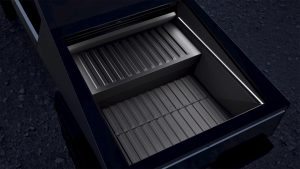
The exact range of the extender is unclear but should bring some versions of Cybertruck up to somewhere between 450 and 500 miles.
Tesla’s solution is to offer a supplemental battery pack which will sit in the Cybertruck’s cargo bed. It will be “structurally mounted to it’s safe in a crash,” lead engineer Wes Morrill wrote in a post on X, the former Twitter now owned by Morrill’s boss, Tesla CEO Elon Musk.
The automaker hasn’t offered specifics about the pack but it’s believed to use the same cylindrical lithium-ion batteries as are found in Cybertruck’s main battery pack which is mounted in a skateboard-like platform underneath the pickup’s load floor.
The most immediate drawback is that the secondary pack utilizes roughly a third of the 4×6-foot floor space inside Cybertruck’s cargo bed – though there is some room above it.
Range
As website Electrek pointed out, the supplemental battery should help Cybertruck get closer to the range numbers Musk quoted nearly five years ago. But even then, statements from Tesla don’t seem to agree on what the actual improvement is.
One statement claims the pack will “ebable more than 450 miles of range without impacting accessory capability.” Another statement claims it will yield “470+ Total Mi Range (Est.)”
Estimates are that the pack will have a usable capacity of 47 kilowatt-hours. It’s expected to come in at around 650 to 700 pounds, according to various sources. That’s a fairly sizable amount of mass to move up so high and it will likely impact Cybertruck’s driving dynamics by raising its center of gravity.
But there’s a bigger drawback.
More Tesla News
- Tesla CEO Musk, Donald Trump Accused of Trying to Intimidate Workers
- Tesla Halts Orders for Base Cybertruck
- Musk Uses Live Conversation with Trump to Promote EVs, Tesla
It’s expensive
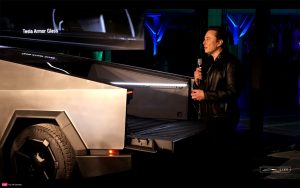
The price for a Tesla Cybertruck has gone up an average $20,000 since the first owners took delivery last November.
Tesla isn’t expected to launch the supplemental battery pack until sometime in the 2025 calendar year. The configurator on the company’s website indicates the accessory should cost around $16,000. But that’s far from a guarantee. Tesla has frequently adjusted prices on its various products and accessories. While there’s been a few discounts in recent times on the Models S, 3, X and Y, Cybertruck’s price tag has risen as much as $20,000 on various trims since the first of the pickups were delivered in November 2023.
Also reason for pause: where advance reservations for a Cybertruck require a small, refundable deposit, buyers who want the second battery will have to fork over a $500 deposit that Tesla says will not be refundable.
If it winds up costing more or delivering less range than expected? Customers will either have to go through with the purchase or write off their deposit, according to a report on Autoblog.
Range-extenders
Tesla isn’t the only automaker turning to range-extenders to help enhance the practicality and appeal of its electric pickup. But competitors like Stellantis and Mazda are taking a different approach.
BMW was the first EV to take this approach with the REx version of its i3 city car. It added a small internal combustion engine to the EV. It served exclusively as a generator to keep the EV’s electric motors running even when the battery pack runs down. Torque from the gas engine was never sent directly to the wheels.
The Mazda MX-30, with barely 100 miles range in all-electric configuration, is being offered in some markets with an optional rotary engine that serves the same purpose. (Note that neither version is currently sold in the U.S.)
Ram’s Ramcharger, a variant of the Ram 1500 REV, will use the same approach, though it will also use a smaller lithium-ion pack than the all-electric model. This approach will be rolled out for a variety of other models from Stellantis, including several Jeep products, company officials have confirmed.
The good and the bad
This approach has its pluses and minuses. As with Tesla’s supplemental battery pack, adding an internal combustion engine raises a vehicle’s cost – though by reducing the size of the main battery, Ram aims to minimize that premium.
Meanwhile, using an internal combustion engine adds mass and potentially impacts factors like mass an a vehicle’s center of gravity.
On the positive side, drivers will be able to keep going indefinitely, simply by pulling into a gas station when the IC engine’s tank is dry. With the Tesla Cybertruck range-extender, when both packs run down a driver will need to find a place to stop and plug in..

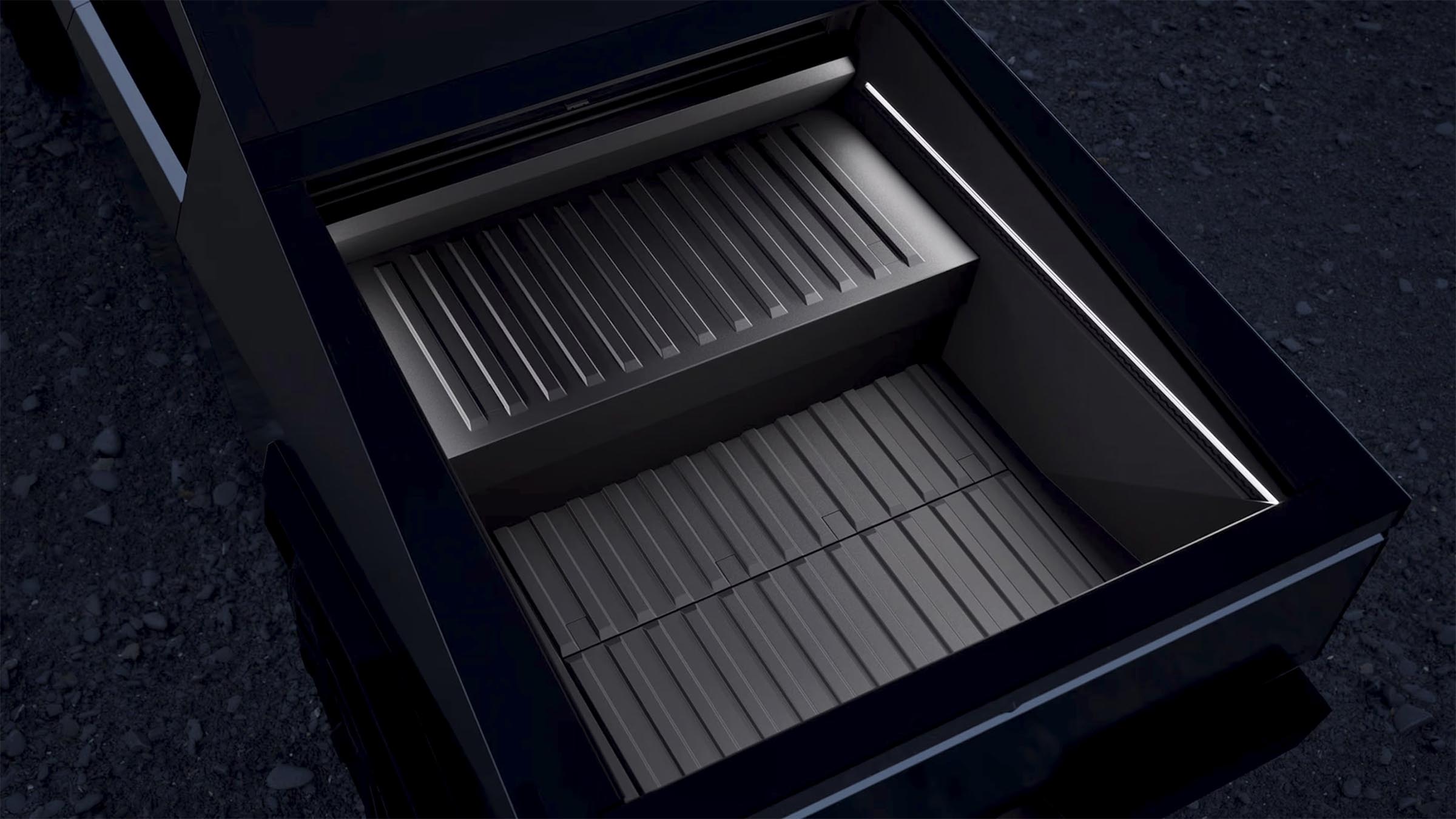

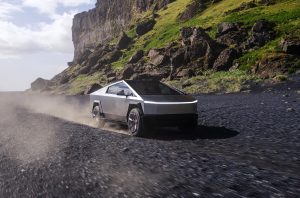
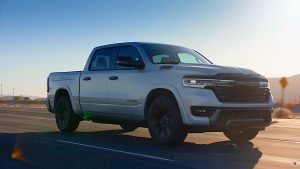


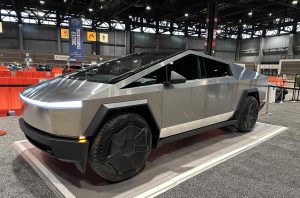
0 Comments